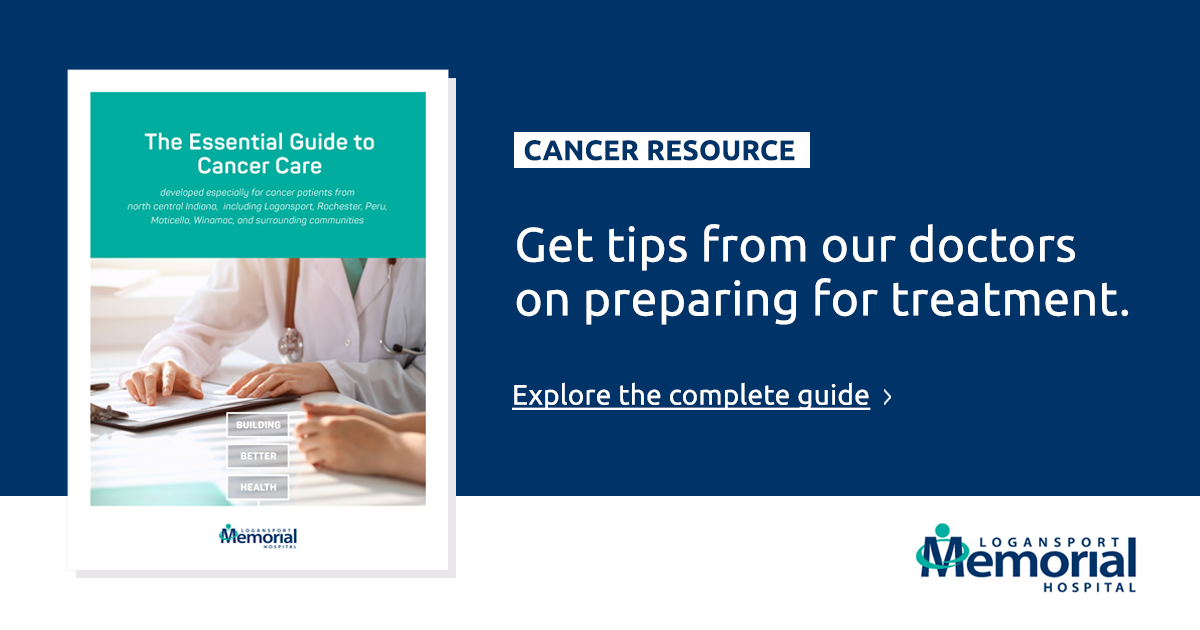Your body often has a way of telling you when something is wrong.
When you notice things that aren’t right, those signs and symptoms might lead you to schedule an appointment with your provider to find the answers.
In most cases, specific symptoms can connect the dots for a diagnosis.
For prostate cancer, though, a little detective work is required for diagnosis. Patients with prostate cancer usually show no signs of having the condition.

Early stage prostate cancer
Early stage prostate cancer is asymptomatic, meaning there are no symptoms that would directly indicate that you have prostate cancer. Rather than looking for symptoms, you should be aware of indicators that may require further testing.
Urinary symptoms—including urgency, frequency, nocturia, and weak stream—do not indicate that you have prostate cancer. Additionally, both people with and without prostate cancer can have an elevated prostate-specific antigen or PSA (generally greater than 4 Nghl).
“An elevated PSA does not mean that you have prostate cancer. It means that you could and that we should look into it.”
—Dr. Stephen Beck, urologist
Typically, if a patient has an elevated PSA, their provider will proceed with a digital prostate exam and prostate biopsy to look for cancer.
What happens after you get a prostate cancer diagnosis?
If cancer is found during a prostate biopsy, your urologist will determine whether or not it is has spread in order to create the best treatment plan. Typical treatment options include, but are not limited to, surgery, radiation, or active surveillance.
Prostate cancer care at Logansport Memorial Hospital
Finding and treating prostate cancer is a team effort at Logansport Memorial Hospital. We provide every patient with specialized care and personalized treatment options.
Urology care with Dr. Stephen Beck
Our board-certified urologist, Dr. Stephen Beck, handles diagnosis, metastatic workup, and treatment option planning.
Surgery is not your only option, and Dr. Beck will let you know that right away. However, if surgery is needed as part of your treatment plan, Dr. Beck will handle that right here, close to home.
One of the many benefits of choosing Logansport Memorial Hospital for your prostate cancer care is that you will have a dynamic team working on your treatment plan.
Dr. Beck doesn’t just choose surgery for you. Instead, he includes our board-certified radiation oncologist, Dr. John Marvel, on the front-end of the conversation to make sure that you are getting the right treatment, right away.
Dr. Beck and Dr. Marvel will explore all of your options with you so that you can make an educated decision about your treatment plan. Your treatment options will largely depend on the grade and stage of your prostate cancer, and your treatment options will be individualized.
Cancer care with Dr. John Marvel
If radiation is a part of your prostate cancer treatment plan, Dr. John Marvel will see you through from start to finish at the Cancer Care Center.
Here at Logansport Memorial Hospital, we use a state-of-the-art linear accelerator to deliver precise doses of radiation with pinpoint accuracy, targeting cancer cells without affecting your healthy tissue.
“When you come to Logansport Memorial Hospital for cancer treatment, you've got a very good chance at beating the disease and finding symptom relief. We’re going to get you top-notch treatment planning.”—Dr. John Marvel, radiation oncologist
Dr. Marvel can also help determine if the Space OAR procedure would be beneficial to your prostate cancer treatment plan.
Learn more about the Space OAR procedure (pdf).
In collaboration with our urology care team, Dr. Beck will place the Space OAR and then return you to Dr. Marvel’s care for continued treatment.
Request more information about the Cancer Care Center
Dr. Beck's advice for those who are newly diagnosed 
Patients who are newly diagnosed should seek education on the disease from their physician and other sources to best determine for themselves the optimal route. “The most important thing is to be educated and knowledgeable on the disease and treatments,” says Dr. Beck.
You should always make an informed decision about your treatment plan based on what your research has found. The best way to be involved in your care plan is to be educated.
“When patients leave my office, they will know exactly what they have. I encourage them to talk to their friends, coworkers, and family about it and to ask advice on what worked for them,” says Dr. Beck. “On top of that, they should do some research on their own. Having a complete understanding of your diagnose can help you play an active role in your treatment plan.”




